News
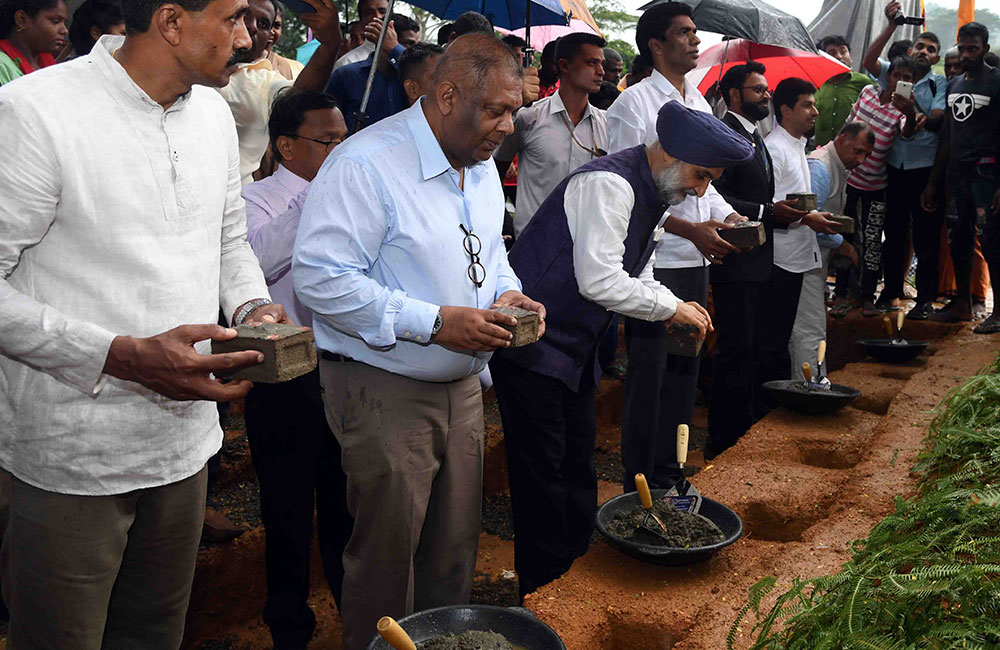
Indian Housing Project extends to Matara
In a special event held on Saturday (06), at Indola Estate in Matara, Indian High Commisioner Taranjit Singh Sandhu along with Minister of Finance Mangala Samaraweera and Minister for Hill country New Villages, Infrastructure and Community Development Palani Digambaram, laid foundation stone for 50 new houses being constructed under the Indian Housing Project.
Members of Parliament and Southern Provincial Council, senior Government officials as well as officials from Plantation Human Development Trust (PHDT), Plantation and Estate Management and a large number of people from the Indola Estate participated in the ceremony.
High Commissioner in his remarks, reiterated Government and people of India’s commitment to participate with the people of Sri Lanka in their journey towards prosperity and development.
Out of the 14000 houses committed by the Government of India in the plantation areas, over 1000 houses have been completed and construction of 3000 is currently underway. As soon as the land for the remaining houses is identified by the Sri Lankan Government, construction of these houses will be undertaken. The locations of these houses are in Central and Uva Provinces covering Nuwara Eliya, Badulla, Kandy, Mathala and Monragala and also in Sabragamuva and Southern Provinces including Galle, Matara, Kegalle and Ratnapura.
These houses are being constructed under an innovative owner driven process with technical support from independent implementing agencies on behalf of the Government of India viz. UN Habitat, International Federation of Red Cross and Red Crescent (IFRC)/Sri Lanka Red Cross (SLRC), Habitat for Humanity, Sri Lanka and National Housing Development Authority of Sri Lanka. IFRC/SLRC is the implementing agency for the houses being constructed at Indola Estate.
In addition to the houses under the Indian Housing Project, 1200 more houses are being built seperately under 50 model villages all across the Southern Province including Galle, Matara and Hambabtota. The 1990 free Emergency Ambulance Services under Indian assistance was first implementedin Southern and Western Provinces and followong its tremendous success, it is currently being expanded Island wide.
India has undertaken more than 70 people-oriented development projects in various fields including health, education, housing, skill development, infrastructure, vocational training among others, all across the country including the largest University Auditorium in Ruhuna University in Matara. About, 20 such projects are currently under progress. The overall development portfolio of Government of India in Sri Lanka is close to US$ 3 billion out of which US$ 560 million are in grants.
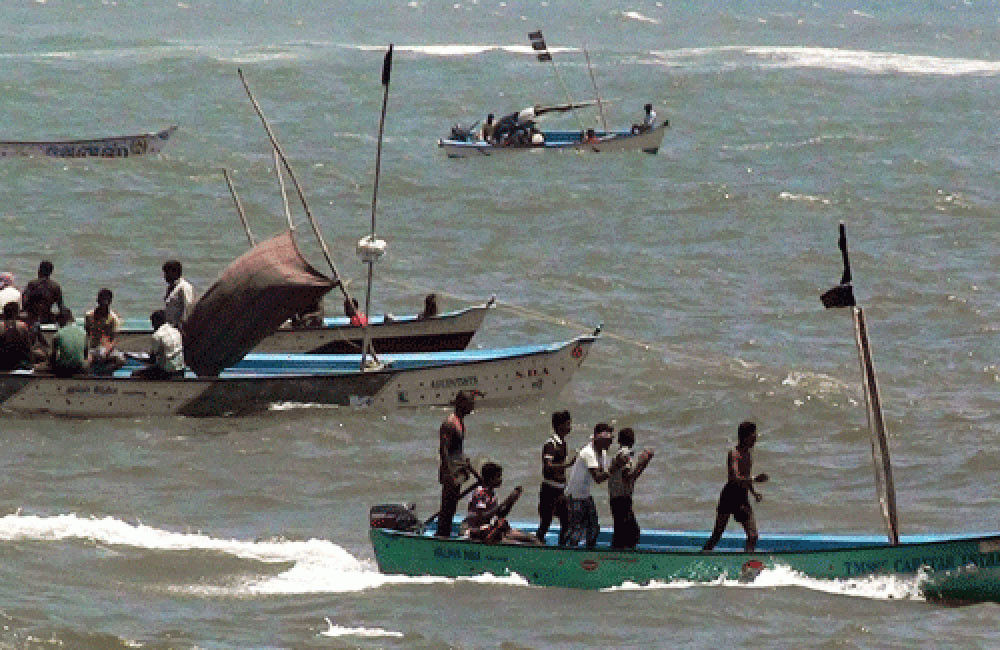
18 Indian fishermen arrested for poaching in Lankan waters
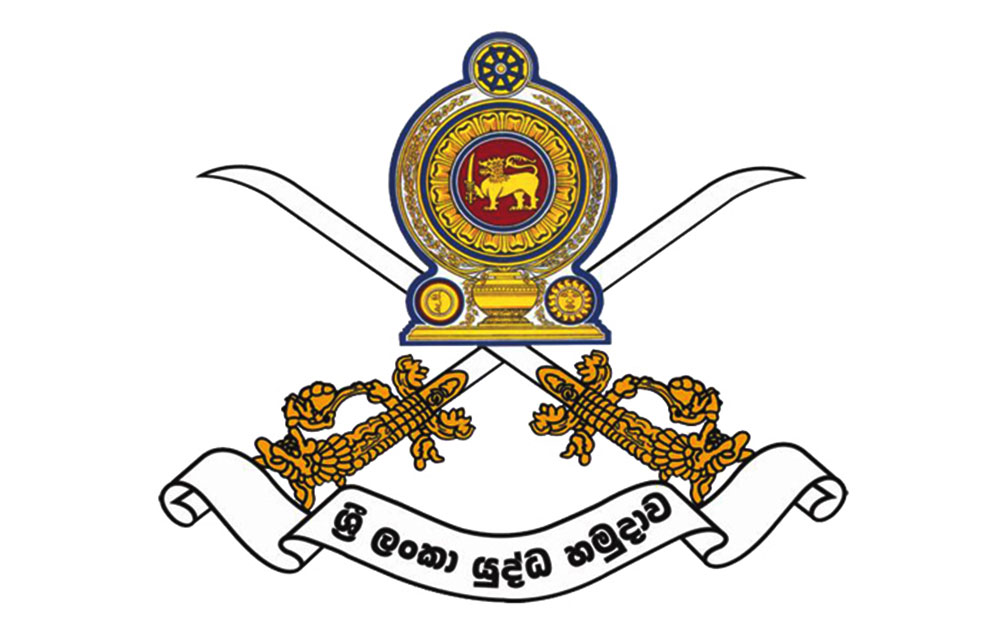
Army offers general amnesty period for absentees
Army offers general amnesty period for absenteesSri Lanka Army (SLA) in a statement today said that a General Amnesty period has been offered from 22 April to 10 May 2019 to all Army absentees, enabling them to receive discharge from service under four categories.
The Army said that the amnesty has been offered by the President, in his capacity as Commander-in-Chief of the Armed Forces and Minister of Defence, on the recommendations of the Ministry of Defence and the Commander of the Army.
This newly-devised General Amnesty under the 1st Phase in the year to begin on 22 April 2019 accordingly facilitates the discharge of all Army Officers who are absent without leave (AWOL) for more than 21 days, Other Rankers who are absent for more than 6 months (180 days) by 22 April 2019 and those absentees willing to rejoin the Army after their absence of more than 6 months.
Considering practical necessities, discharge of those absentees is to be implemented under four categories as mentioned below;
Category No - 1:
Those long-term absentees who do not owe any money to the Army or are not implicated in any legal matter are eligible to receive a direct discharge, irrespective of paraphernalia (Q items), issued to the subject or any other legal matters, involved in civil courts.
Category No - 2 :
Those who have no legal obligations and are capable of settling their loans against remaining balance money in the Army Benevolent Fund, Suwa Sahana Fund and Compulsory Savings Fund or through the guarantors or relatives, can be discharged, irrespective of paraphernalia, issued to the subject or any other involvement in legal issues in civil courts.
Category No - 3 :
Under this category, those absentees without any legal issues or any loans that should be paid back to the Army or whose loans can be settled against their balances in the Army Benevolent Fund, Suwa Sahana Fund and Compulsory Savings Fund either from the guarantors or the relatives, are eligible to receive a discharge from the Army.
Category No – 4 :
Absentees who have been charged for indiscipline or accused of other malpractices or criminal acts could also receive a discharge in accordance with existing Army legal procedures and regulations.
Likewise, all paraphernalia (‘Q’ items) issued to the absentees and any of their involvement in non-Army related civil court cases, would in any way not be considered under all four categories expecting to receive discharge from the Army as specified above.
Similarly, all those absent for more than 6 months from service but are still willing to rejoin, will be considered for reinstatement if requested so.
Under this new programme for delisting, absentees within this General Amnesty period are requested to directly reach their respective Regimental Headquarters either in person or by communication to receive their discharge from service within the specified period.
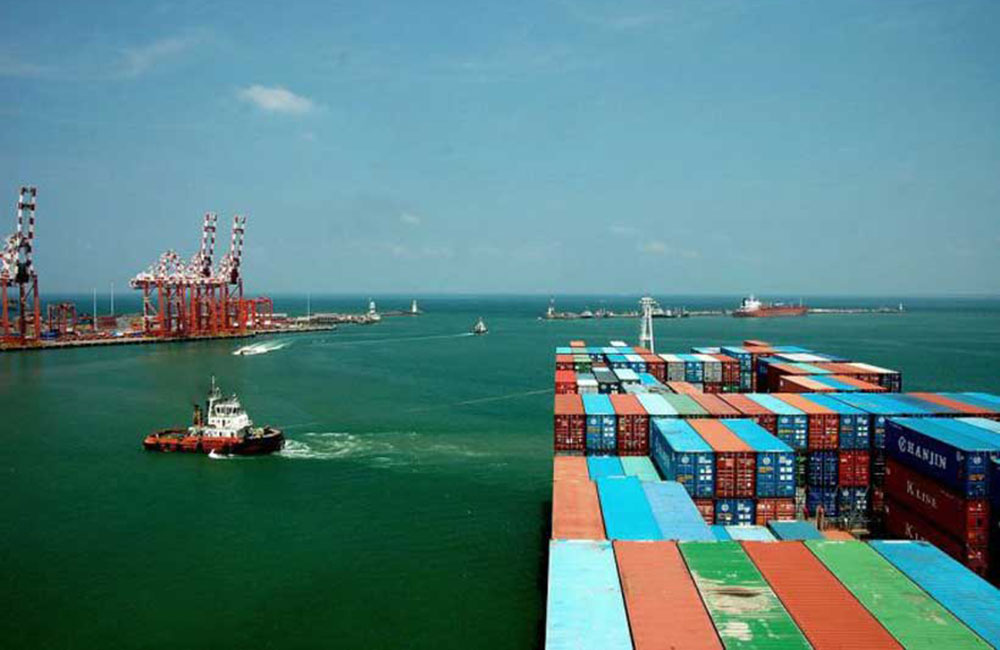
Sri Lanka's growth to recover gradually but commitment to reforms remains essential
Sri Lanka’s economic growth is projected to pick up to 3.6% in 2019 and further to 3.8% in 2020 from 3.2% in 2018, a new Asian Development Bank (ADB) report says.ADB’s flagship annual economic publication, Asian Development Outlook (ADO) 2019, forecasts a gradual recovery supported by a turnaround in the construction sector and continued growth in services.
The agriculture sector, which picked up pace in 2018 after two years of weak performance, is expected to continue growing at the same pace assuming weather conditions remain normal.
“While the economy is projected to recover over the next two years, for Sri Lanka to sustain and accelerate growth, fiscal and structural reforms remain essential,” said the Senior Country Economist at ADB’s Sri Lanka Resident Mission Mr. Utsav Kumar. “Addressing policy constraints will be critical to avoiding repeated macroeconomic pressures and to generating sustained sources of foreign exchange earnings.”
Proposals announced in the 2019 budget will support private expenditure and thus growth. The public investment to gross domestic product (GDP) ratio is expected to pick up and will be an impetus to investment and the construction sector. Overall, the budget aims to keep the primary balance in surplus in 2019 and 2020 and reduce the fiscal deficit further, thereby maintaining the path of fiscal consolidation.
Headline inflation, as measured by the national consumer price index, is expected to inch up to 3.5% in 2019 and further to 4.0% in 2020 stemming from a pickup in economic activity, base effect for inflation, and a strengthening in nonfood and core inflation observed since late 2018 and early 2019.
The current account deficit will drop to 2.5% of GDP in 2019 and increase marginally in 2020. A recovery in agriculture exports, continued increase in tourist earnings, and a slowdown in vehicle imports will contribute to a decline in current account deficit. Though the impact of Brexit on the overall Sri Lankan economy is estimated to be marginal, a downside risk to the garment sector emanates from a no-deal Brexit scenario involving a possible tariff escalation between Sri Lanka and the United Kingdom. The large repayments on account of external debt servicing and political uncertainties may affect market sentiment and exert pressure on the Sri Lankan rupee.
A key policy challenge for the Sri Lankan economy is recurrent weather-related disasters in 2016 and 2017 that have had multiple impacts as evidenced by slow economic growth, high domestic food prices, a high oil import bill, high government spending, and high number of food-insecure households limiting daily minimum calorie intake. With a large proportion of the population close to the poverty line, gains made in poverty reduction over the past two decades may be at risk from exposure to disasters. Sri Lanka needs to focus on areas prone to disasters and to move toward a more disaster-resilient economy by preventing and mitigating consequences of weather-related hazards. Efforts also need to be made toward mobilizing funds for risk reduction and adaptation, establishing the right policy framework, and building institutional capacity.
(Modern Diplomacy)
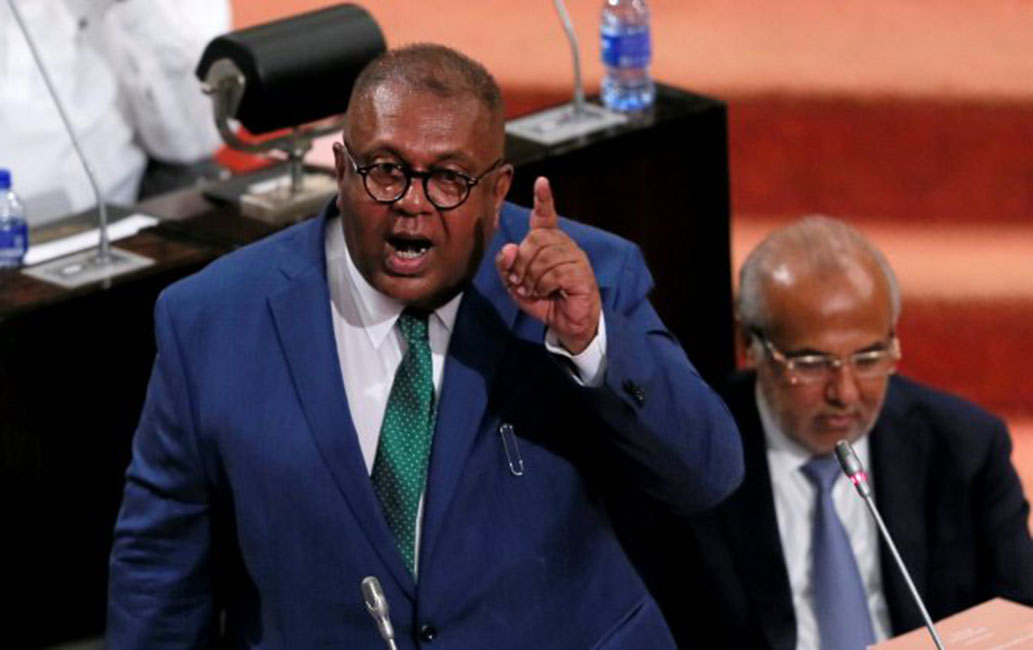
Final vote on Budget 2019 passed in Parliament
The vote for the Third Reading of the Budget 2019 which was presented by Finance Minister Mangala Samaraweera under the the theme of 'Empowering the people;nurturing the poor' was passed today in Parliament with 119 votes in favour and 74 votes against.
Samaraweera in his wind up speech said that during the final days of 2018, Sri Lanka was in a precarious situation, the likes of which had never been seen in our post-independence history. Without a budget in place, Sri Lanka was within weeks of defaulting on sovereign debt for the first time in its history, the state was not in a position to pay salaries, pensions, and welfare payments, come January 1st 2019, he pointed out.
"The judiciary and independent institutions that our government helped foster, had the fortitude and resilience to stand up to the anti-democratic forces that grabbed power for 51 days," he said.
Samaraweera said that it has been an uphill battle to stabilize an economy that was in disarray by December 2018 and added that he was pleased to state that we have made significant progress towards this end.
"We are now seeing investments return to all aspects of our economy. There has been Rs. 10 billion net inflows of foreign investments into government securities since January, a strong recovery following the exodus of Rs. 57 billion during the 51-day crisis," he said.
As a result of the improved fundamentals, the rupee has now appreciated by 4.5% since January 2019.
"The Rupee is among the top 3 best performing currencies in the world in 2019", Samaraweera said.
Following 3 credit downgrades during the 51 day crisis and imminent debt default, the Finance Minister said that it was indeed creditable the way in which the government was able to regain the confidence of global markets and refinance at a favourable rate.
"Having stabilized the economy once again, the government’s priority now is to rejuvenate economic growth. Whilst Enterprise Sri Lanka’s concessional credit schemes are already stimulating small business investment with over Rs. 70 billion in new finance for SMEs and entrepreneurs, several other measures are being undertaken in parallel", he added.
Samaraweera also said that the Gampereliya programme is once again moving ahead at pace, with significant investments going into rural roads, rural markets, minor irrigation, places of worship, and other rural infrastructure.
"Gampereliya is directly injecting cash into the rural economy – it is doing so in a manner that builds the economic capacity of rural Sri Lanka, by improving connectivity to markets, enhancing drought resilience, and building other productive infrastructure", he said.
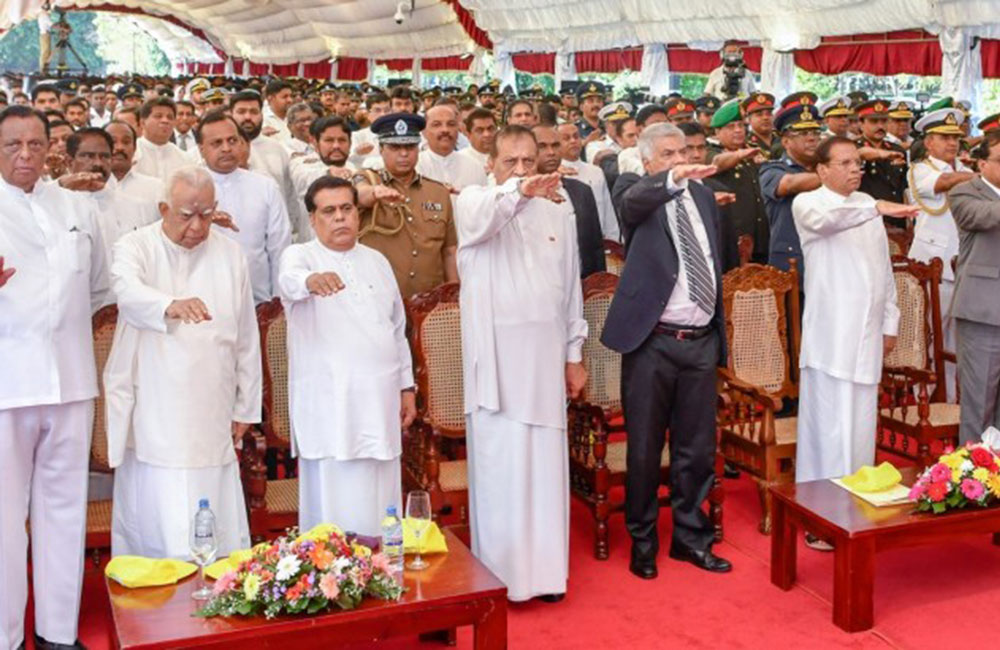
Sri Lanka takes 'Bakmaha Divuruma' pledge to create a drug free country
Sri Lankans across the country took the 'Bakmaha Divuruma', a national pledge to eradicate the drug menace to confirm their total commitment to control and eliminate the illegal drugs from the country.
The inaugural event of this programme was held under the patronage of President Maithripala Sirisena today (03), at the Independence Square in Colombo, with the participation of the Prime Minister Ranil Wickremesinghe, Speaker Karu Jayasuriya, MPs and Heads of Tri-Forces. The public attended the ceremony in large numbers as well.
Those who gathered at the Independence Square pledged to commit themselves to make the country free of illicit drugs for the sake of the future generation, to successfully conduct drug prevention programmes, to take steps to shun drugs as an individual, and to contribute for the great collective efforts to free the Sri Lankan public from drug menace.
This event was live streamed through electronic media, and it was simultaneously telecast to institutions, public offices, schools and the general public.
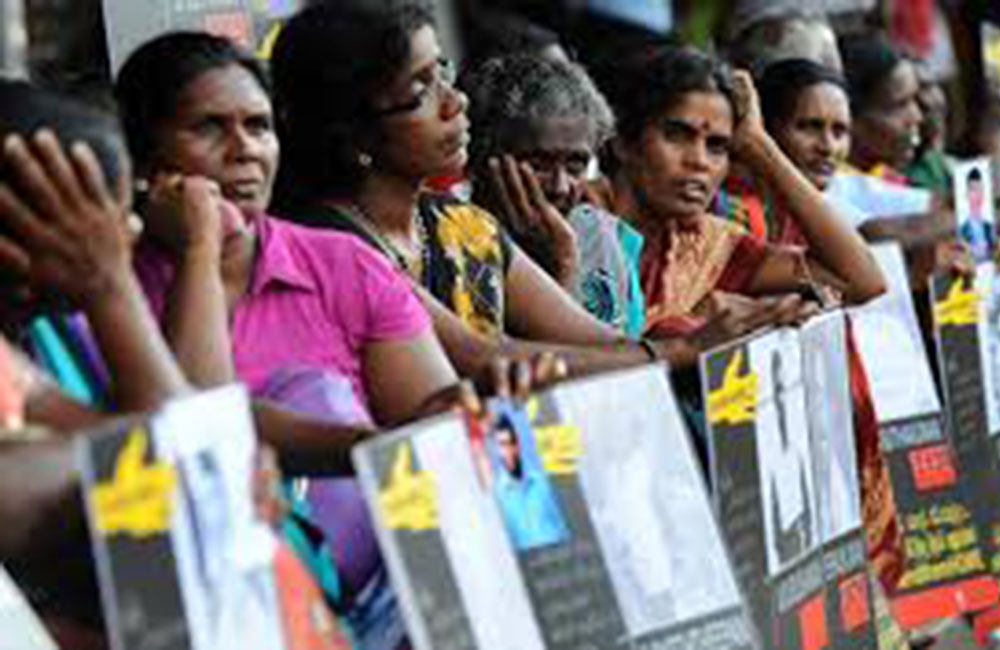
Commissioners appointed for the Office of Reparations
Following the passage of the Office for Reparations Act No. 34 of 2018 on 09th October 2018, the Constitutional Council have appointed commissioners for a three-year period, the Secretariat for Coordinating Reconciliation Mechanisms (SCRM) said in a statement today.
Accordingly, the following members have been appointed.
1- Ms. Dhara Wijethilake – Chairperson
2- Mr. A. A. Fathihu – Member
3- Col. (Rtd.) W.W Rathnapriya Bandu – Member
4- Dr. J. M Swaminathan – Member
5- Ms. Sumithra Sellathamby– Member
The Commissioners were selected in an open and competitive process conducted by the Constitutional Council (CC) of Sri Lanka and were nominated by them to the President for appointment.
An allocation of LKR 700 million was made for the establishment and staffing of the Office for reparations through Sri Lanka’s National Budget for 2019.
The Office for Reparations is an independent authority tasked with formulating, designing and implementing reparations policies aiming to redress victims who suffered violations in the course of past conflicts in Sri Lanka. The Office for Reparations can provide individual or collective reparations and make recommendations to the Cabinet of Ministers.
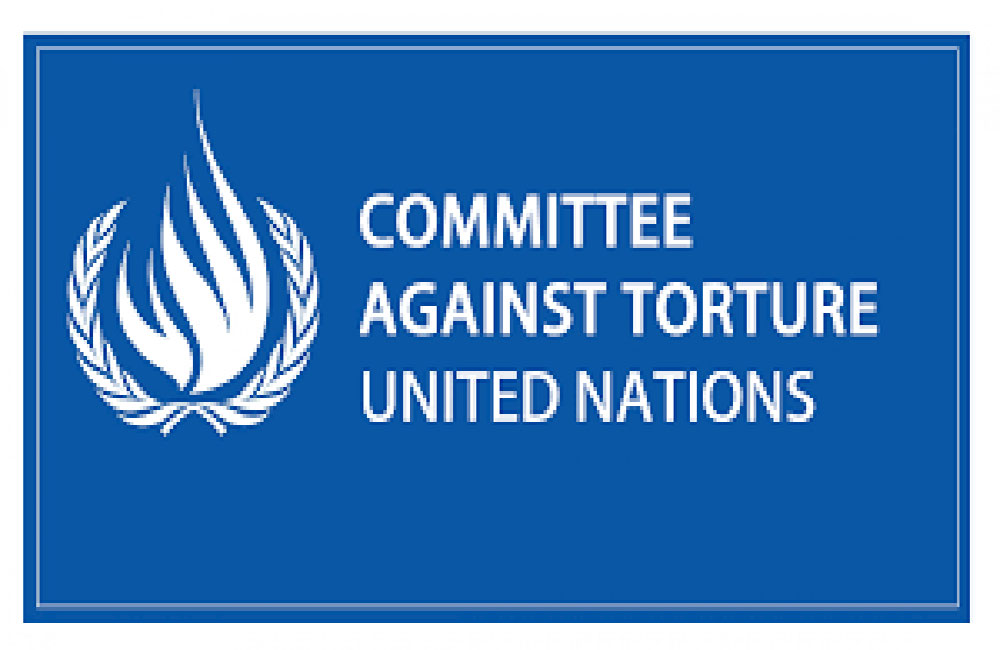
UN torture prevention body visits Sri Lanka
A delegation of the UN Subcommittee on Prevention of Torture (SPT) arrived in Sri Lanka yesterday for an 11-day visit.
The SPT will examine the treatment meted out to people deprived of their liberty in the Indian Ocean island nation and the safeguards in place for their protection from torture. It will hold meetings and discussions with ministries and government officials in addition to meeting members of the Human Rights Commission of Sri Lanka and various civil society organizations.
Article 1 of the Optional Protocol of the Convention against Torture and Other Cruel, Inhuman, or Degrading Treatment or Punishment (OPCAT) mandates the creation of the SPT. The objective is to establish a system of regular visits undertaken by an independent international body to places where people are deprived of their liberty, in order to prevent torture and other cruel, inhuman or degrading treatment or punishment. Sri Lanka ratified OPCAT in 2017.
Under OPCAT, the mandate of the SPT is to visit places of detention in states and to advise and assist states concerning the establishment and functioning of national torture preventative mechanisms. It has unrestricted access to all places of detention, installations and facilities and to all relevant information relating to the treatment of persons and to conditions of detention.
The SPT is empowered to undertake private and confidential interviews with both persons deprived of their liberty and any other person who, in the SPT’s opinion, may supply it with relevant information. The SPT also co-operates with international, regional and national organizations and institutions working to strengthen protection against torture and ill-treatment.
“During our visit we will be exploring the steps Sri Lanka needs to take to effectively prevent torture and ill-treatment of people deprived of their liberty,” said Victor Zaharia, who heads the delegation. “We will also advise the authorities on the full implementation of their treaty obligations, including how they can best establish a national independent body to visit places of detention,” he added.
Eighty-nine countries have ratified OPCAT as of March 2019.
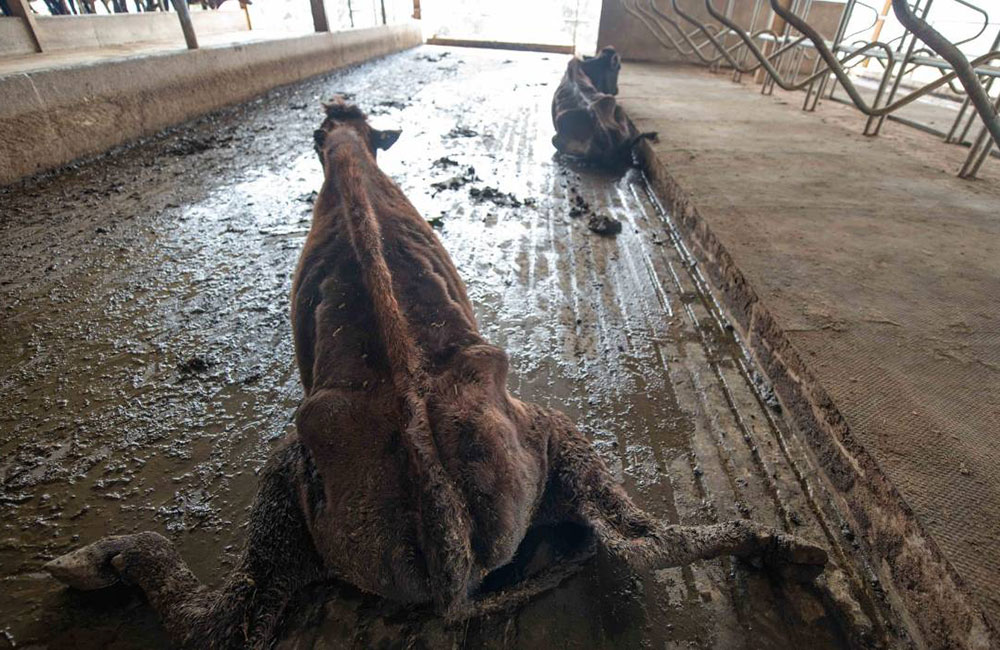
Thousands of cattle exported to Sri Lanka being housed in 'horrific conditions'; 500 already dead
The Australian company behind a live export programme which allegedly left hundreds of cattle dead says it is unlikely to ship any more animals from New Zealand under the scheme.
Animal export company Wellard is contracted to deliver 20,000 dairy cows to Sri Lanka under a programme set up to improve the country's fresh milk supply.
It has so far shipped 2000 cattle from New Zealand and a further 3000 from Australia. About 500 of the 5000 animals are reported to have died. 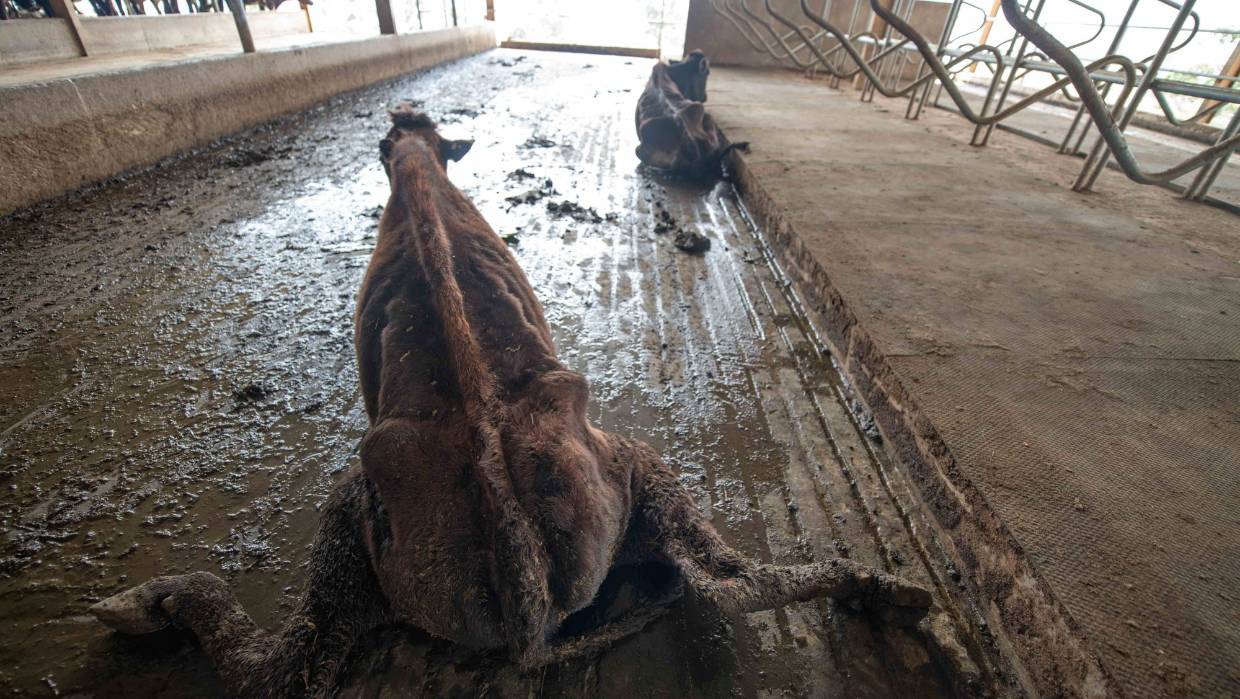 Cattle exported from New Zealand and Australia to Sri Lanka are being housed in horrific conditions, a programme broadcast in Australia alleges.
Cattle exported from New Zealand and Australia to Sri Lanka are being housed in horrific conditions, a programme broadcast in Australia alleges.
Six cattle from New Zealand died on the voyage to Sri Lanka, data from the Ministry for Primary Industries (MPI) shows.
A spokesperson for the Western Australian company said it was unlikely any more cattle would be sent from New Zealand under the programme.
"Any future consignments of cattle, which will only occur after changes have been made to the programme, are likely to be from Australia," a spokesperson for the company said.
"This shipment was subject to all of our usual export approval procedures. Our verification services inspectors were involved in our usual role ensuring animal welfare requirements were met before and during transport.
"We are of course very concerned to hear of any animals in poor conditions, and it's even more worrying to hear of people living in poor conditions and struggling to care for animals that are their livelihood", the company sai.
In a tweet on Thursday, Minister of Agriculture Damien O'Connor said he had instructed MPI to conduct a "thorough review" of all proposed live exports from New Zealand to ensure animal welfare obligations would be met.
But animal welfare group Safe said it was time O'Connor stopped "sitting on his hands" and put a stop to live exports of breeding animals.
"O'Connor has a choice. He can choose whether New Zealand continues to export vulnerable cows into such appalling conditions," Safe ambassador Hans Kriek said
"Wellard is planning to export a further 15,000 cows, but O'Connor can choose to protect New Zealand's reputation and refuse to export any more cows."
New Zealand's largest company Fonterra contracts a number of Sri Lankan farmers to supply it with milk, although there is no suggestion these farmers are involved in animal maltreatment.
Wellard said it would check with its Sri Lanka representative as to whether any of the exported cows ended up on Fonterra supply farms.
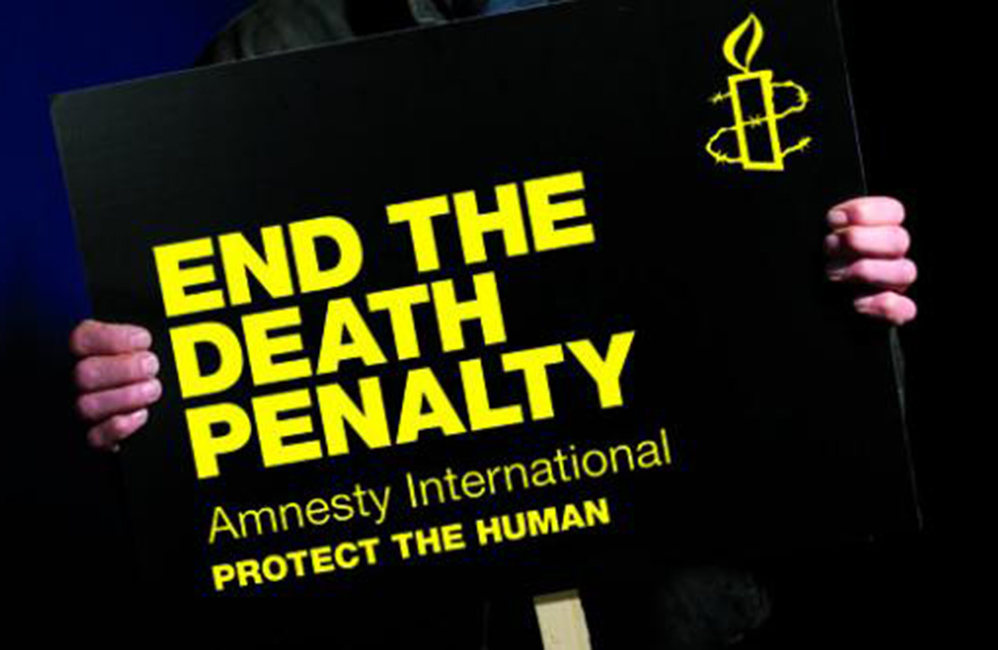
Executions will not end drug-related crime: Amnesty International
Executions will not end drug-related crime in Sri Lanka, Amnesty International said today, in a new briefing that makes the case against President Maithripala Sirisena’s plan to revive the death penalty 43 years after the last execution was carried out on the island.
The briefing, Sri Lanka: Halt Preparations to Resume Executions, highlights how the death penalty is being used in circumstances that violate international law and standards, has failed to act as a unique deterrent to crime in other countries, could claim the lives of people who may have been convicted through unfair trials, and could disproportionately affect people from minority and less advantaged socio-economic backgrounds.
“There is no evidence that implementing the death penalty will end drug-related crime. Executions are never a solution. Indeed, they may result in people being put to death following unfair trials. The death penalty is also a punishment that disproportionately affects people from less advantaged socio-economic backgrounds,” said Biraj Patnaik, South Asia Director at Amnesty International.
Amnesty International’s briefing highlights the lack of evidence that the death penalty has unique deterrent effect on crime. Statistics from countries that have abolished the death penalty show that the absence of executions has not resulted in an increase in crimes, previously subjected to capital punishment.
The briefing highlights countries that have abolished the death penalty, or amended drug laws, including Iran where recent legislative amendments have resulted in a significant decrease in executions of people convicted of drug-related offences. Similarly, in Malaysia, the government announced a moratorium on executions and a review of the country’s death penalty laws, after having introduced some sentencing discretion for the offence of drug trafficking in 2017.
Amnesty International also highlights how the trials of those facing execution could have failed to meet international fair trial standards, due to torture and forced “confessions” being routinely practiced in Sri Lanka’s criminal justice system, as noted by the National Human Rights Commission of Sri Lanka and UN experts.
“There is no coming back from an execution. There is no criminal justice system that is perfect. The risk of executing an innocent person can never be eliminated, and the injustice that ensues can never be redeemed,” said Biraj Patnaik.
Furthermore, the briefing also highlights that evidence from other countries shows that defendants from less advantaged socio-economic backgrounds, belonging to racial, ethnic or religious minorities are disproportionately vulnerable to being sentenced to death.
Amnesty International calls on the Sri Lankan government to halt its current execution plans and establish an official moratorium on the implementation of death sentences, with a view to abolishing the death penalty altogether.
“No criminal justice system is capable of deciding fairly who should live or who should die. Sri Lanka has not implemented this ultimate cruel, degrading and inhumane punishment for more than four decades. It should continue to honour a tradition that chooses life instead of vengeance,” Patnaik added.

AIIB approves US$ 280 million loan aimed at improving living conditions in SL
The Asian Infrastructure Investment Bank (AIIB) said on Friday it has approved loans worth $280 million for its first two projects in Sri Lanka, aimed at improving living conditions in the country.
A $200 million loan will improve housing conditions for low-income communities in Colombo by building affordable housing and redeveloping land while another loan of $80 million will be used to reduce the risk and damage from landslides in Sri Lanka, Xinhua news agency quoted an AIIB statement as saying.
Investment in the Urban Regeneration Project will support the construction of about 5,500 housing units and other related infrastructure in Colombo.
The housing units will be provided to individuals and families currently living in under-served settlements that are impacted by poor sewer and solid waste management systems and dilapidated housing structures.
"Providing affording housing will improve the quality of life for those in need in Colombo," said AIIB Vice President and Chief Investment Officer D.J. Pandian.
"Smarter urban planning will also enable the city to attract more foreign investment and increase its potential as an economic hub for the country."
The investment to reduce landslide risk will support the design and construction of mitigation or protection measures where landslides have already occurred or are at risk of occurring.
It will also support the review and strengthening of the policy and regulatory systems for landslide management at local and national level.
"With global warming contributing to increased risk of both the number and intensity of climatic events in Sri Lanka, landslide mitigation efforts are an important part of ensuring the sustainability of vital infrastructure," said AIIB Director General Supee Teravaninthorn.
"Our involvement in this project will help us to develop capacity in disaster mitigation, so we can support other members in the planning and implementation of climate-resilient and major disaster prevention projects."
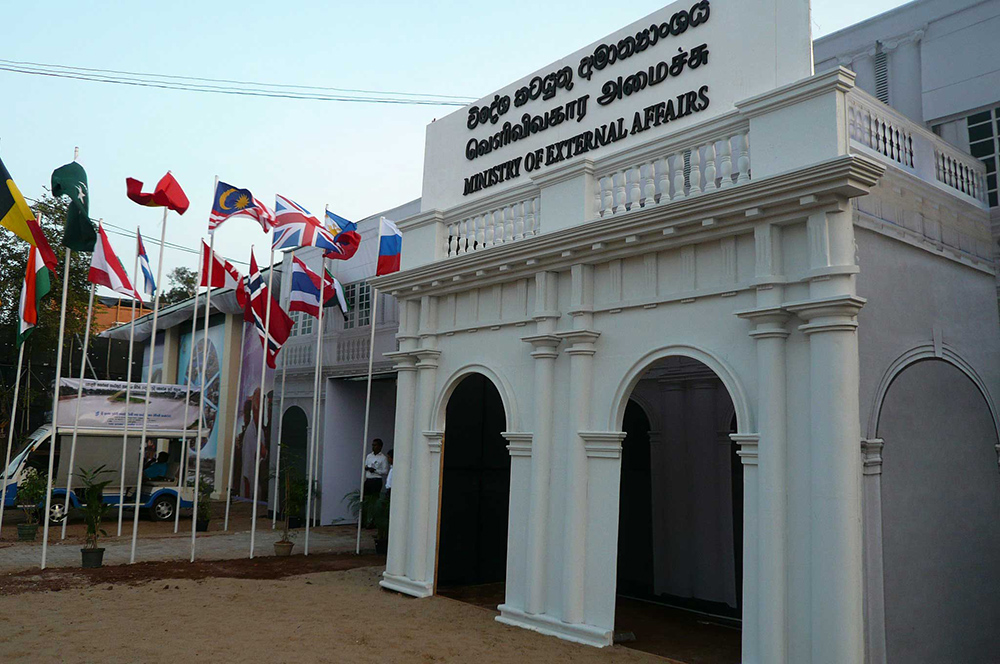
Foreign Ministry censors statements made by the Finance Minister
For long years, the Ministry of Foreign Affairs has been sending clippings from the local newspapers on a daily basis to all Sri Lanka Missions overseas. However, since of late, the Missions have come to notice that the Ministry of Foreign Affairs leaves out statements made by the Minister of Finance from these daily news clippings.
The Finance Minister recently issued two statements on matters related to human rights and the resolutions adopted by the Human Rights Council on Sri Lanka. One statement that was carried in the press on 20th March was in response to a statement made by the Leader of Opposition Mahinda Rajapaksa.
In the second statement that was carried in the press on 02nd April, the Minister of Finance said that he felt that it is his duty, as the person who held the portfolio of Foreign Affairs when the original 30/1 resolution was adopted on 01st October 2015, to respond to some of malicious arguments being made and misrepresentation of facts relating to the recent 40th session of the Human Rights Council.
The censorship by the Ministry of Foreign Affairs has led some to wonder whether the Ministry of Foreign Affairs does not want its Missions to find out the truth about important matters pertaining to the human rights of all citizens as well as matters pertaining to Sri Lanka’s engagement with the world which is the primary task of the network of Missions overseas. Some have been wondering whether the Foreign Ministry knows that the 52 day political crisis has ended. Perhaps the Minister of Foreign Affairs Tilak Marapana and his Secretary Ravinatha Aryasinha think that the Foreign Ministry belongs to an imaginary SLPP Pohottuwa Government, and the 52 days have not quite ended for them as yet.
Page 353 of 532